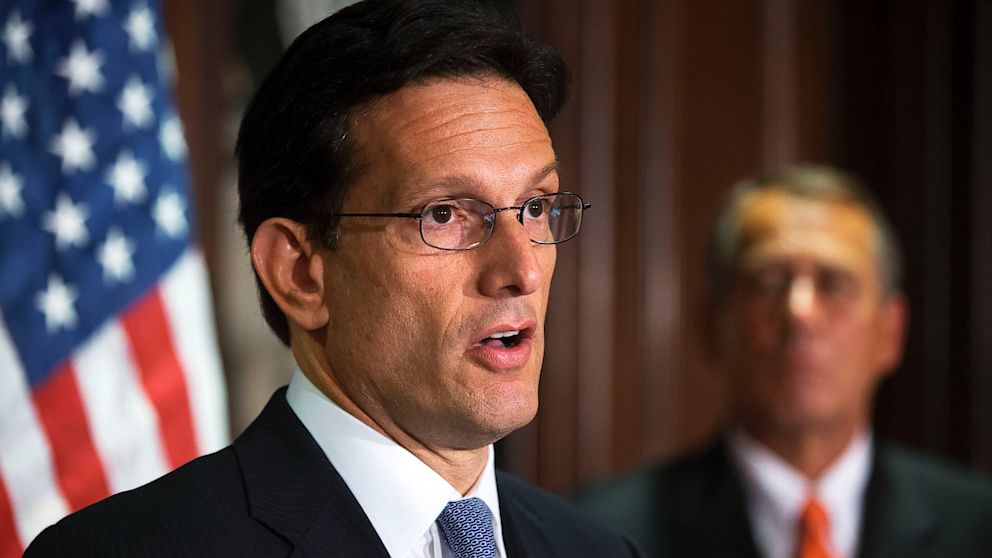The Goldilocks Speech
House Majority Leader Eric Cantor weighs in on the president's speech.

— -- When it comes to foreign policy, it is critical that American Presidents adhere to a simple rule: say what you mean and mean what you say.
Since World War II, the United States largely followed this policy resulting in the collapse of the Soviet Union and an era of unprecedented security and prosperity for both the U.S. and the world.
Believing that this rule applies irrespective of who occupies the White House, I joined other Republican leaders to voice support when President Obama announced in September 2013 that military action may be necessary in response to Assad's use of chemical weapons in Syria. President Obama had drawn a line in the sand and it needed to be enforced.
Yet the President retreated from this threat and today, Assad is still in power, is still in possession of chemical weapons, and is still slaughtering his own people.Unfortunately, this is but one of several examples of a foreign policy that is indecisive and confused. The President's policies have emboldened our adversaries and concerned our allies – all with real-world consequences. President Obama often says the right thing without execution or worse, acting in a counterproductive way.
Today's address at West Point was a goldilocks speech. Trying to find the lukewarm bowl of porridge will not likely reassure those who worry about our lack of leadership, and will not concern those who fear its return.
Syria
At West Point, President Obama noted that Syria remains a crisis that is spilling across borders, and as a result "the capacity of battle-hardened groups to come after us increases." I agree. Syria is increasingly becoming a haven for terrorists, some linked to al Qaeda.
Yet, the President's retreat on Syria and subsequent inaction has made this terrorist threat both worse and harder to solve. Moreover, his inaction has allowed Iran, Hizballah, and Russia to double-down on their support of the Syrian regime, increasing the likelihood they will share in any Assad victory.
I welcome the President's call to work with Congress to ramp up support for those in the Syrian opposition who offer us the best alternative to the current regime and the terrorists who support it. However, after years of dithering on Syria, it's time for President Obama make a more direct case to the American people about why Syria matters and which objectives he hopes to achieve.
Iran
President Obama told the cadets that we reserve all options to prevent Iran from obtaining a nuclear weapon. Yet, Iran is now closer than ever to a nuclear weapons capability despite his red-line, and it is still making progress. The interim deal allows Iran to continue sophisticated research into uranium enrichment and to benefit from relaxed sanctions, while failing to require Iran to come clean on its past or present nuclear-weapons related activities. Far from accepting President Obama's outreached hand, the Iranians have expanded their support for terrorism and instability in the region (see Iraq and Syria) and even planned a terrorist bombing on American soil. President Obama may be serious in saying all options are on the table, but the problem is neither Iran nor others in the region believe such a threat is credible.




